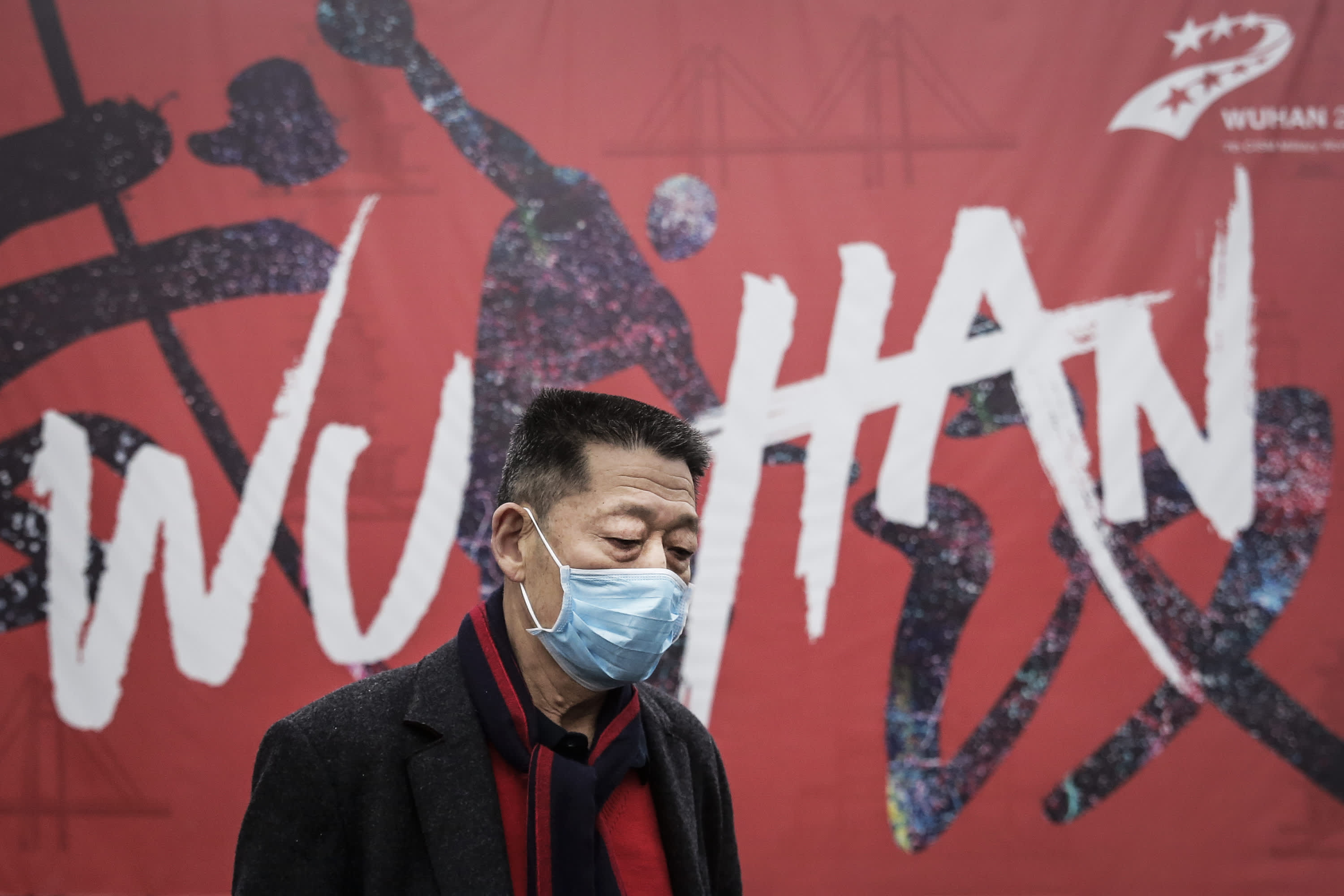
A man wears a mask while walking in the street on January 22, 2020 in Wuhan, Hubei province, China.
Getty Images
As governments around the world plan to loosen restrictions imposed to contain the coronavirus pandemic, some countries have reported a resurgence in cases — prompting fears that a new wave of infections is imminent.
Public health experts — including those at the World Health Organization — have for weeks warned authorities against lifting containment measures too early, which could cause a rebound in new coronavirus cases. Meanwhile, investors and analysts said another round of lockdowns would exacerbate the damage already inflicted on the global economy.
In Asia, where the coronavirus first hit, several countries including China and South Korea have experienced an uptick in cases after restrictions were eased. In some instances, authorities have had to reimpose measures that restrict interactions between people to once again fight the virus spread.
Jonathan Garner, chief Asia and emerging market equity strategist at Morgan Stanley, said new waves of infections could be a recurring theme facing investors around the world in the coming months.
"It's likely to be with us for a very sustained period and it will materially change the pattern of global economic behavior," he told CNBC's "Street Signs Asia" on Monday.
Here's a look at the Asian countries that have reported a resurgence in cases.
China
The coronavirus disease — which has been formally named Covid-19 — was first detected in China last December. The country accounted for a vast majority of cases globally from the start of the year until March, when outbreaks in several European countries — and subsequently the U.S. — accelerated rapidly.
China, the world's second-largest economy, implemented some of the strictest lockdown measures globally. Authorities shut off transportation links from cities including Wuhan — the epicenter of the country's outbreak — and closed schools and businesses.
Those measures are gradually being eased and the total lockdown on Wuhan ended on April 8 after 11 weeks.
For most of the past month, China consistently reported small numbers of daily new cases, most of which were "imported." But health authorities in recent days said there were new local clusters of infections in cities including Wuhan and Shulan.
The new cases found in Wuhan were the first in the city in more than a month, while Shulan — located in the northeast province of Jilin — had not registered any new infections for more than 70 days, reported Reuters.
Officials raised the risk level of Shulan to high from medium and reimposed some lockdown measures on the city this week including closing public spaces such as sporting facilities and libraries, and halting some train service in and out of the city, according to Reuters.
That's not the first time that China has had to reintroduce measures to contain the virus after lifting them. Last month, authorities reportedly tightened restrictions in Harbin city in Heilongjiang province after a rise in imported cases; while gyms in Beijing were ordered to shut again a few weeks after being allowed to resume operations.
South Korea
South Korea was among the first countries outside China to report cases of the coronavirus disease. But unlike China, South Korea managed to lower the number of new cases without extensively locking down its economy.
Instead, the South Korean government responded to the outbreak by quickly ramping up testing capacity and aggressively tracing and isolating potential cases. The country also introduced some social-distancing measures, which restrict gatherings and close schools and workplaces.
New cases in the country fell from hundreds a day to single-digit levels for most of the past two weeks as South Korea started lifting social-distancing measures. But over the weekend, the country reported its biggest daily jump in infections in a month — according to WHO data — with many of those new cases linked to several nightclubs and bars in capital city Seoul.
Authorities are now tracking down the thousands more people who went to those same night spots. Health Minister Park Neung-hoo said the government will decide whether to continue with its plans to reopen schools in stages starting Wednesday, reported Reuters.
Japan
Japan experienced a second wave of Covid-19 before the latest jump in cases in China and South Korea.
The northern island of Hokkaido was the first in Japan to declare a state of emergency in late February, as it had the highest number of coronavirus infections in the country then. Under the state of emergency, schools were closed, large gatherings canceled and people were advised to stay home.
The measures appeared to work and by mid-March, Hokkaido lifted the state of emergency after the number of new cases declined. But less than a month later on April 12, the prefecture reinstated the emergency declaration after an increase in new infections, reported Kyodo News.
Earlier this month, Japanese Prime Minister Shinzo Abe extended the nationwide state of emergency to May 31, reported Reuters. But the country's Economy Minister Yasutoshi Nishimura reportedly said on Monday the declaration could be lifted in some regions this week if the number of new Covid-19 cases remain under control.
"some" - Google News
May 12, 2020 at 11:53AM
https://ift.tt/3fD0IiF
As countries consider lifting lockdowns, some in Asia are experiencing a resurgence in coronavirus cases - CNBC
"some" - Google News
https://ift.tt/37fuoxP
Shoes Man Tutorial
Pos News Update
Meme Update
Korean Entertainment News
Japan News Update
Bagikan Berita Ini














0 Response to "As countries consider lifting lockdowns, some in Asia are experiencing a resurgence in coronavirus cases - CNBC"
Post a Comment